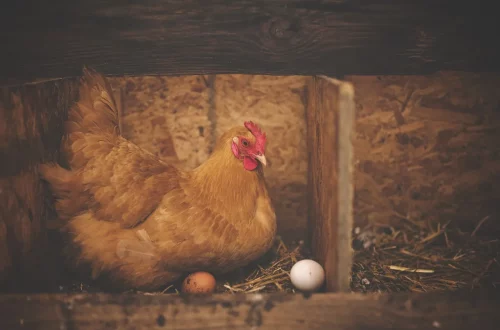
The Charming Traits of the Newfoundland Brown Dog You Should Know
The Newfoundland breed, often recognized for its impressive size and gentle demeanor, holds a special place in the hearts of dog lovers around the world. This breed, known for its striking brown coat and kind eyes, embodies a unique blend of strength and affection. Originally bred for water rescue and as working companions, Newfoundlands have proven to be not only reliable partners but also loving family pets. Their calm nature and intelligence make them highly trainable, while their loyalty to their families is unmatched.
Beyond their physical appearance, Newfoundlands exhibit a range of charming traits that endear them to those who encounter them. These dogs are known for their gentle giant persona, making them excellent companions for children and adults alike. Their history as working dogs contributes to their strong work ethic and adaptability, further enhancing their appeal. As we explore the various attributes that define this remarkable breed, we will uncover the reasons why Newfoundlands are celebrated for their loving temperament, strong protective instincts, and unwavering loyalty.
Gentle Giants: The Temperament of Newfoundlands
One of the most endearing traits of the Newfoundland is its temperament. Known as gentle giants, Newfoundlands possess a calm and affectionate nature that makes them exceptional family companions. Their disposition is characterized by a combination of patience, kindness, and a natural instinct to protect those they love.
Newfoundlands are particularly good with children. Their playful yet gentle demeanor allows them to interact with kids in a way that is both safe and enjoyable. They are not easily startled and often display a remarkable level of tolerance, making them ideal playmates. This breed is known to be incredibly nurturing, often showing a protective instinct towards younger family members. Their innate ability to sense emotions allows them to be comforting companions during times of distress.
Additionally, Newfoundlands are highly trainable. Their intelligence and eagerness to please their owners make them responsive to training and commands. With positive reinforcement techniques, they can learn a variety of commands and tricks, enhancing their bond with their owners. Their patience during training sessions further exemplifies their gentle nature, making the process enjoyable for both the dog and the handler.
Socialization is crucial for Newfoundlands, as it helps them develop their natural temperament. Exposing them to various environments, people, and other animals at a young age can help reinforce their calm demeanor and adaptability. This breed thrives on human interaction and will often seek affection and companionship from their families.
In summary, the Newfoundland’s gentle temperament, combined with their loving nature, makes them perfect companions for families of all shapes and sizes. Their ability to form strong bonds with their human counterparts is one of the many reasons why they are cherished by dog lovers worldwide.
Strength and Versatility: A Working Dog Heritage
Newfoundlands were originally bred as working dogs, specifically for water rescues and other demanding tasks. This heritage has endowed them with remarkable physical strength and versatility. They are natural swimmers, equipped with webbed feet that enhance their swimming ability, allowing them to navigate through water with ease. This trait is not only impressive but has also made them renowned for their lifesaving capabilities in emergencies.
Historically, Newfoundlands were employed by fishermen to haul nets and retrieve lost equipment from the ocean. Their powerful build and strong swimming skills made them invaluable to maritime communities. Today, this breed continues to be recognized for its work ethic and ability to perform tasks that require strength and endurance.
Beyond their historical roles, Newfoundlands excel in various canine sports and activities. They are often seen participating in obedience trials, agility courses, and even search and rescue operations. Their intelligence and willingness to work closely with humans make them ideal candidates for these activities. Additionally, their gentle nature allows them to participate in therapy and service dog programs, providing emotional support to those in need.
The Newfoundland’s strong instincts and trainability also make them excellent candidates for training in specialized roles. Their ability to learn and adapt quickly allows them to excel in tasks that require focus and discipline. This versatility showcases the breed’s remarkable capability and reinforces their status as one of the most beloved working dog breeds.
In essence, the Newfoundland’s heritage as a working dog contributes to its strength and versatility. Whether they are rescuing individuals from perilous situations or participating in canine sports, Newfoundlands continue to demonstrate their impressive abilities and commitment to serving their human companions.
Caring for Your Newfoundland: Grooming and Health
Caring for a Newfoundland involves understanding their grooming needs and health considerations. This breed has a thick, water-resistant coat that requires regular maintenance to keep it healthy and free from mats. Brushing their fur at least once a week is essential to prevent tangles and reduce shedding. During shedding seasons, more frequent grooming may be necessary to manage loose fur effectively.
Bathing should be done as needed, but it is crucial not to over-bathe, as this can strip their coat of essential oils. When grooming, it is important to check for any signs of skin issues or parasites, as Newfoundlands can be prone to certain skin conditions. Regular ear cleaning and dental care should also be part of their grooming routine to maintain overall health.
In terms of health, Newfoundlands are generally robust dogs, but they can be predisposed to certain genetic conditions. Common health issues include hip dysplasia, elbow dysplasia, and certain heart conditions. Regular veterinary check-ups and a balanced diet are vital in ensuring their long-term health and well-being. Responsible breeding practices can help minimize the risk of genetic health concerns.
Providing a nutritious diet that meets their specific needs is crucial for Newfoundlands, especially given their large size. High-quality dog food formulated for large breeds can help maintain a healthy weight and support their overall health. Regular exercise is also essential, as these dogs require physical activity to stay fit and happy. While they may enjoy swimming and playing outdoors, it is important to avoid overexertion, especially in hot weather.
In conclusion, understanding the grooming and health needs of Newfoundlands is essential for responsible ownership. By providing proper care and attention, you can ensure that your Newfoundland remains a healthy and happy member of your family for years to come.
The Unique Bond: Loyalty and Affection
One of the most remarkable traits of the Newfoundland is its loyalty and affection towards its family. This breed forms strong bonds with its human companions, often becoming deeply attached and protective. Their loyalty is evident in their desire to be near their owners and their instinct to protect them from harm.
Newfoundlands are known for their affectionate nature, often displaying their love through gentle nudges and cuddling. They thrive on companionship and will seek out opportunities to be close to their families. Their calm and patient demeanor makes them excellent listeners, and many owners find comfort in their presence during challenging times.
This breed’s loyalty extends beyond their immediate family. Newfoundlands are known to be friendly and welcoming to guests, often treating newcomers with curiosity and warmth. Their gentle giants persona allows them to engage positively with strangers, making them great companions in social settings.
Moreover, Newfoundlands are often described as intuitive dogs. They seem to sense their owner’s emotions and respond accordingly, providing comfort during difficult moments. This emotional intelligence has made them popular choices for therapy dogs, as they bring joy and solace to those in need.
In summary, the unique bond that Newfoundlands form with their families is characterized by loyalty, affection, and emotional support. Their ability to connect deeply with their owners enhances the experience of dog ownership, making them cherished members of the family.
In conclusion, Newfoundlands are more than just dogs; they are affectionate companions, strong protectors, and loyal friends. Their charming traits, combined with their gentle nature and impressive abilities, make them a beloved breed among dog enthusiasts. As with any breed, prospective owners should consider their specific needs and characteristics to ensure a harmonious relationship.
*Disclaimer: This article is not intended as medical advice. For any health concerns regarding your pet, please consult a qualified veterinarian.*




